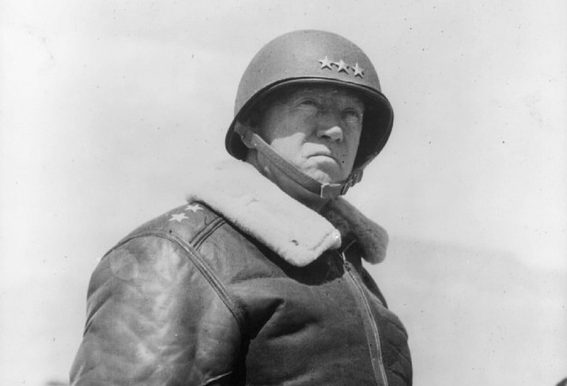
Interpreting Patton, the Classic Film
Bryce Bourgeois
Patton is a 1970 film following general George S. Patton as he leads his armies to victory after victory during World War II. It was directed by Franklin Schaffner and written by Francis Ford Coppola and Edmund North. It stars the acclaimed George C. Scott as Patton. It won 24 awards including 7 Oscars.
Though the movie follows the events of the western front of the war, the movie is primarily concerned with Patton and his character. He is portrayed as a brilliant general but a flawed man. From this complicated portrayal, I feel that there are two primary interpretations: one positive and one negative.
One of the first things that is shown about Patton’s character is his military acumen. He is a brilliant, tough, and efficient general. He gets called in the lead the primary American North African army, his strategy was very useful in the liberation of Sicily, and his work in France and Germany is highly praised. He even receives high praise from his enemies.
His leadership in the military flows into his personality. His whole purpose in life is to be a general. He comes from a military family and his sole ambition is to lead in a great war. He’s a rather eccentric man, believing himself to be a warrior from past centuries reincarnated. He constantly talks about the military history of the areas where he fights, or he speaks as if he had firsthand knowledge of how the Romans or Greeks fought or how Napoleon used tactics.
This part of his personality makes up a huge part of his character. It is also how he is flawed. He fancies himself a noble warrior in a modern era that lacks a sense of valor. He talks about the past often and isn’t fond of the present and future, especially where warfare is concerned. At multiple points he gets himself in trouble through his actions and words. Almost everything he says to the press gets him into controversy. At the end this point is made very clear by a conversation he has with General Omar Bradley (played by Karl Malden), who becomes Patton’s superior officer but has remained his firm friend. Bradley says to Patton, “I sense from now on, just being a good soldier won’t mean a thing. I’m afraid we’re gonna have to be diplomats, administrators, you name it.” This is something Patton has proven throughout the film that he isn’t good at.
This element of his character is part of how he is flawed and complicated. Patton doesn’t belong in the modern world nor outside of war. When he is relieved of command for his actions, he is desperate to return. He was upset that he might miss out on his last chance to lead an army with the whole world at war. Patton lives for the glory of war; it’s his only purpose in life. He is willing to disobey orders and put his troops in greater danger for it. He’s a great general but he’s not fit for any other life and war is consuming to him. For Patton, nothing else can compare to it.
This flaw flows into the two interpretations of his character, which hinge on how we ultimately see Patton and his flaw. The positive reading makes us take a sympathetic view of this character flaw, and thus him. In this view he is the noble warrior lost in a time where he doesn’t belong. Here he’s a good leader and contributor to the war effort and a general whose successes display greatness. Patton is ultimately good in this reading and the bulk of his flawed nature can be attributed to the times. In any other era he would be hailed like Caesar or Napoleon, but in this time he doesn’t quite fit.
A quote from the film displays this. After the war, General Bradley, who had sometimes criticized him, says to Patton, “George, I want to say one thing. You’ve done a magnificent job here in Europe.” This supports a positive reading of his character. Patton may have had his issues, but ultimately he pulled through when he was needed.
The negative interpretation takes this flaw into a vastly different perspective. Here Patton is a good general but a bad man. He produces good results, but he disobeys orders and is a public relations nightmare. He loses his command because of this and during this period longs to return. He’s a warrior in a world that has little need for them. In this analysis, Patton is a man so consumed with his love for war to the exclusion of all else. This includes politics, diplomacy, and sometimes the well-being of the troops in his command. He is only of use because of his military skill; in any other area, he doesn’t belong.
This reading can be seen in a quote from a German officer as he destroys information. He comes across an intelligence picture of Patton and remarks that he is “the pure warrior… a magnificent anachronism.” While this is in line with the positive reading, the critical point here is who is making this observation. The fact that Patton is praised so highly by an officer who serves the Nazi regime should convey something rather negative about him.
The great thing about this film is its portrayal of the complicated nature of the titular character. The film never makes a judgement about Patton one way or the other. The two separate viewpoints about his character depend on how one views the film. Is Patton a noble warrior out of his time, or is he a good general but a flawed person who cannot adapt?
The answer is left to the perspective of viewer, which is how history evaluates every leader and legend.